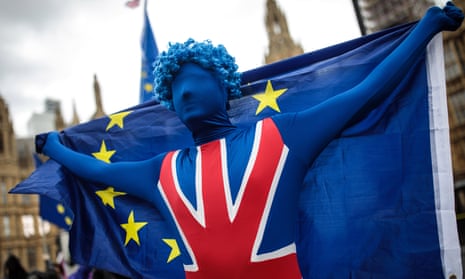Peers and MPs claimed a significant victory on Wednesday when an attempt to give sweeping powers to ministers was thrown out of the Brexit bill as complaints about the power of the Lords to reverse the decisions of the Commons grew louder.
In the first of a series of votes on how the powers brought back from Brussels would be limited by the balance between ministers and parliament, peers from all parties defeated the government by 349 to 221 – a majority of 128.
On Tuesday, the Tory backbencher and vociferous Brexiter Jacob Rees-Mogg accused peers of “playing with fire” over Brexit. A petition calling for a referendum on the abolition of the Lords has attracted more than 100,000 signatures and is eligible for a debate at Westminster.
Amnesty International said the Lords had “ripped up the blank chequebook that ministers sought to give themselves.
“The Lords have sent a clear message to the Commons: leaving the EU shouldn’t mean leaving rights behind.”
The vote on Wednesday, which was one of the biggest majorities against the government so far, overturned an attempt to give ministers the power to decide to make changes to EU laws on the basis of what they “considered appropriate” rather than what was necessary.
Critics, led by the crossbencher Lord Lisvane, argued that it was too low a bar to set for what may be very significant decisions. He dismissed a compromise offered by the government to include the phrase “good reason”.
“The test for political decision-making is not simply whether there are good reasons. There may be good reasons for doing something and better reasons for not doing it,” Lisvane said.
He said the EU withdrawal bill would be a precedent for other legislation resulting from Brexit.
“Whichever side of the Brexit debate they stand, people might reasonably believe that taking back control would be under the sovereignty of parliament rather than ceding swaths of power to the executive.”
Among other powers sought by the government but expected to be rejected by the Lords was the power to set up new agencies without an act of parliament, and the power to create new criminal offences.
The government faces three more days of challenges to the bill, in particular over the row with Scotland over devolved powers, which the Scottish National party has refused to accept. As a result Holyrood could refuse to grant legislative consent, creating another standoff with Westminster.
The Brexit minister Lord Callanan argued that the changes risked making the bill unworkable. On Monday, peers overturned a move to exclude the EU charter of fundamental rights from the bill.








